In November, Rory Stewart and Alastair Campbell came to Dublin.
They are an unlikely, if compelling, duo – the hardened socialist and the Conservative with close ties to King Charles. Together, they developed a hugely popular podcast, and their chemistry was evident at the event, organised by KPMG.
The more I watched the duo talk, however, the more worried I became. The conversation was littered with the word “crisis”.
In his lifetime, Alastair Campbell said he could not recall “a time when the world has been grappling with so many different complex challenges that have the potential to cause significant difficulties for governments, people, and businesses”.
Stewart added that the world has become increasingly chaotic and unpredictable with changes taking place around 2014. “From that moment onwards, the number of democracies in the world has begun to drop. The number of people in poverty in Sub-Saharan Africa has risen pretty steeply. And every year since 2014, the number of refugees has increased, the number of internally displaced people has increased, the number of wars has increased and this is, in a way, something that we’re still struggling to deal with.”
That level of crisis and chaos is reflected in our coverage over the past 12 months. From riots to plummeting tech stock to war, the world has become a more challenging place to live in – and to understand.
The riots on the streets of Dublin in recent weeks encapsulate it all: social chaos driven by a curious right-wing fervour that has long existed here but is now out of the shadows, visible for all to see.
Our politics is becoming more contested and less insightful and solution-orientated. Everything has become a crisis.
This impacts the world we live in and the climate in which business operates. If 2023 marks the end of Irish exceptionalism from the creep of the right, what will 2024 bring?
I don’t have the answers. But as I went through the articles that we published on The Currency over the past 12 months, I saw both the best and the worst of society, of business, of government.
We covered tales of brilliant entrepreneurs and visionaries who were building businesses and creating employment. But we also saw stories of excess and greed.
We have seen scandals and success, graft and grift, and a fragmented body politic.
I have selected 30 pieces from our archives that tell the story of the year. I could have selected 300 more. The world is changing. Ireland is changing. We are attempting to reflect those changes.
*****
The perils of war: the aviation sector’s billion-dollar battle over beached Russian assets
Sadly, Russia’s brutal onslaught on Ukraine has continued throughout 2023. And the commercial fallout from the illegal invasion of Ukraine has continued also. No more so than in the world of aviation, with lessors attempting to secure insurance payments on planes seized by Russia. And given Ireland’s central role in the world of aviation leasing, it is no surprise that much of that litigation is being heard in Dublin.
We have covered the story throughout the past year, attempting to unravel a complex legal battle that will dwarf any commercial action ever taken in Ireland – the total sums involved are well over $3 billion. At the trial, lessors say they intend to offer expert evidence in Russian law, Russian politics, and the aviation leasing market. In January, Francesca gave the inside story of some of the world’s largest aircraft lessors are fighting tooth and nail for compensation in the Irish courts.
Bill Browder: “The Irish government is wobbly on military aid and financial aid to Ukraine”
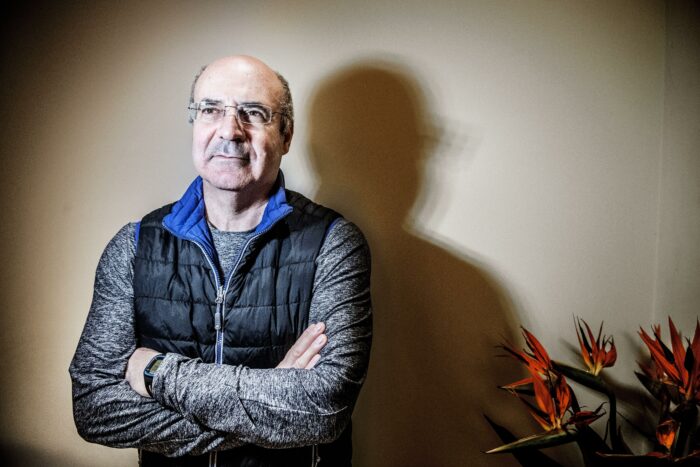
As Russia uses its military might, the West has sought to back up Ukraine with military and financial assistance, while also attempting to disrupt the Russian economy through sanctions. But are these sanctions going far enough?
For more than a decade, Bill Browder has travelled around the world trying to get governments including Ireland’s to impose sanctions on Russian oligarchs involved in the murder of his lawyer Sergei Magnitsky. And the experience for him has been “frustrating”, as he felt people dismissed what he was saying to continue to do business with Russia.
In February, he gave his verdict on the response by the Irish government to Rosanna in a hard-hitting interview. “The Irish government is wobbly on military aid, financial aid to Ukraine,” said Browder. “It’s a lot better to make an investment to get it done and stop it properly now, because if Putin were to succeed in winning in Ukraine, he wouldn’t stop. He would move on to Estonia, Poland, other Nato countries – and Ireland doesn’t want to be involved in a direct conflict with Russia.”
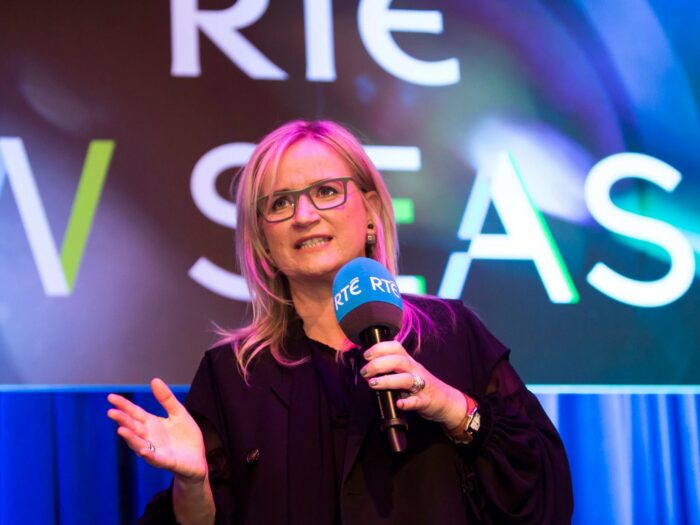
RTÉ’s engineering of secrecy: Anonymous “consultancy fees” and an account “outside” normal controls
The scandal that engulfed RTÉ at the end of June shook the institution to the core, writes Thomas Hubert. How could a secret agreement with the broadcaster’s best-paid presenter Ryan Tubridy escape the attention of its oversight bodies until after the undeclared payments were made?
Within days of the initial revelations, which cost RTÉ director general Dee Forbes (pictured) her job, Sean offered an important insight: RTÉ’s remuneration committee, which oversees top earners’ pay, had failed multiple statutory duties. In 2020, the year when Tubridy’s partly secret remuneration deal was agreed, it did not meet at all. Moya Doherty, the chair of RTÉ’s board and of the remuneration committee, did not attend it for almost four years.
There was more to come as the controversy occupied two Oireachtas committees and the news agenda through the slow summer season. I was first to pinpoint the core issue with Tubridy’s pay: He had received €150,000 in taxpayers’ money for work expected to take place with the Late Late Show’s sponsor, Renault, but had never performed that work. When pressed later by TDs and senators, Tubridy agreed that he should hand this sum back, but in the ensuing debacle that saw him fired from RTÉ, he went off with this money.
Rosanna rounded off this year’s coverage of the saga with an interview with RTÉ’s new director general Kevin Bakhurst on November 17 (obtained after four months of repeated requests). She pushed him on his plan to secure 400 voluntary redundancies in exchange for a €56 million bail-out from the Government, an unprecedented figure in the broadcaster’s recent history of swinging cuts.
“Heaven after 19 years of torture”: What one Dublin social homes project tells us about the housing crisis
The housing crisis was another dominant theme in the national discourse this year, and part of that relates to Ireland’s inability to build social housing projects at scale and with speed. Living near the Dominick Street flats for more than six years, Thomas looked on in dismay as the overgrown site first remained idle while the housing crisis inexorably deepened, and then finally saw partial development. Meanwhile, on his short walk to the central Dublin location, he had seen private developers complete two blocks of student residences and a hotel from scratch, but no other homes.
Why did it all take so long? From sources directly involved in the project, previously unpublished internal documents, and expert academic analysis, Thomas told the story of the two decades that have resulted in the replacement of nearly 200 out-of-date homes with just over 70 habitable homes today, albeit incredibly better ones.
How Denis O’Brien lost control of Digicel, his trophy asset

Denis O’Brien began the year as chairman and majority owner of Digicel, the Caribbean and Pacific telecoms operator that propelled him to the ranks of the uber-wealthy. He ended the year with a board seat and a minority stake, as he cut a deal with the company’s bondholders to restructure the company’s massive debts.
It had been coming, but in a statement released in March, it was confirmed that bondholders would be taking the majority of the equity in Digicel in exchange for a reduction of the company’s debt of $1.8 billion, down from $4.5 billion. In the aftermath of the announcement, Sean told the story of how O’Brien ceded control of the business he had established – using six graphs and a glut of market intelligence.
“Digicel’s problems are complicated. But you can boil them down to one number — the ratio between its profits and debt,” he wrote.
“The number is called the net-debt-to-Ebitda ratio. What this number shows is debt relative to profits before interest (and tax, depreciation, and amortisation – but interest is the important one). The ratio gives a sense of whether a company has borrowed more than its profits can sustain.”
“Had this been a public investigation, there would have been a public outcry”
Walter Hobbs is a chartered accountant, corporate financier, venture and private equity investor, and an experienced non-executive director. He had a blue-chip track record in KPMG for 11 years, AIB corporate finance for seven years and with venture firm ACT for 15 years.
He was also one of the people at the epicentre of the Siteserv deal, although, up until then, he had seldom featured in media reports on the transaction. Six months after a government commission published its investigation into the sale of the company to Denis O’Brien, Hobbs gave an exclusive interview to Tom, where he shed new light on the investigation, and revealed the personal toll of the investigation.
Hobbs argued that until Ireland reforms how it carries out investigations, businesspeople should be careful about taking on State work. “The professional business community should be very wary about engaging in commercial transactions which have a State dimension,” Hobbs warned.
How to spend it: Paschal Donohoe on turning economic resilience into social and political capital
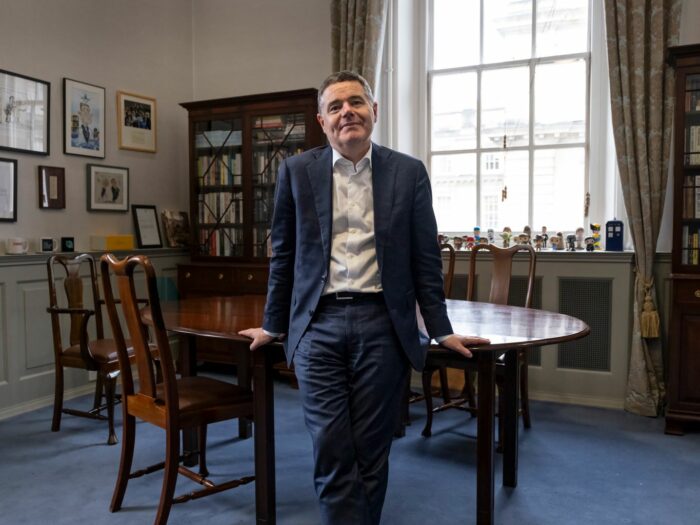
The Department of Finance and the Department of Public Expenditure and Reform are two separate, if highly related, government departments. However, they are run from the same building on Merrion Street in Dublin 2. So, when Paschal Donohoe and Michael McGrath rotated positions as part of the cabinet reshuffle in December, McGrath moved one floor down, and Donohoe one floor up.
In May, I made my way to the office of Paschal Donohoe. In addition to being the Minister for Public Expenditure and Reform, he was tasked with delivering the National Development Plan. It was his first major interview since he took on the post, and he outlined his ambitions and priorities for the position.
We covered a lot of ground but the conversation centred on translating Ireland’s current economic buoyancy into some tangible outcomes for the public.
“I am acutely aware of the social cost of us not turning this economic resilience into more homes, better schools, better hospitals,” Donohoe told me. “And I even fully appreciate that it’s harder and harder for me to make the argument for running budget surpluses if we can’t show people that their living standards are either improving or are going to improve soon.”
Paul Flynn: A freak accident made me realise I was wrong about the split season
At the end of August, Paul Flynn’s club Fingallians were involved in a match against Clontarf. He went up for a ball with an opponent in front of him and as he did, there was a clash of heads. Later, the surgeons would tell Paul that it was a freak, an incident they see more in road accidents than on a sporting field, but his head hit Paul in whatever the opposite of a sweet spot is, fracturing his skull, eye socket, and nose. He had surgery for six hours to repair the damage but a few weeks after the incident, he felt he would never be right again. “I certainly knew I would never play again,” he wrote.
Flynn did play again but the injury changed his perspective about the role of the club in the GAA and the balance the organisation has to make between elitism and community.
Ian Kehoe on the Dublin riots: The far right, right there all along

The growing societal disconnect that Paschal Donohoe referred to in our May interview resonated some months later in Dublin when, on a chilling November evening, 13 shops were looted, three buses and one Luas tram were set on fire and 11 Garda vehicles were damaged. The scenes were unprecedented in Ireland. But they are not unprecedented. We have witnessed similar riots in other European countries over the past 12 months, fuelled by a rising tide of anti-immigrant sentiment and a growth in both the visibility and the popularity of far-right parties.
To me, the riots marked the end of Irish exceptionalism. An end to the belief that we were different from other nations and that we were immune from the rise of the extreme right and from the appeal of the strong man/weak man narrative – a narrative that the MMA fighter Conor McGregor spread to his 10.2 million followers on the social media platform once known as Twitter.
As I wrote in the aftermath of the riots: “Increasingly, our political debate has moved away from solutions to problems. And when you create a problem, you need someone to blame. It can be the government. It can be foreigners. But someone has to be blamed.”
Rosanna Cooney in Lisbon: Without Cosgrave taking up all the air, Web Summit could breathe

For the first time in its existence, Web Summit was devoid of Paddy Cosgrave’s physical presence in Lisbon this year after he resigned following a controversy over his tweets on the Israel/Gaza conflict. Rosanna went to the event and reported that what the conference lacked in stars and investors, it had a chance to make up for in other areas.
“This year without Paddy Cosgrave on stage or holding court in the forum area for speakers and those willing to pay €30,000 for access, the event ironically could breathe in its own right,” she wrote. “Yes, the biggest story remained the fall-out from his comments, the absence of any A-list speakers, and the total dearth of the giants of the corporate world like Google, Meta, and Intel – all of whom pulled out.
“But aside from the desecration of the speaker lists, and losing people like the founder of the World Wide Web Tim Berners-Lee, Y-combinator’s Garry Tan, and Comedian Amy Poehler, the conference got a chance to be something new.”
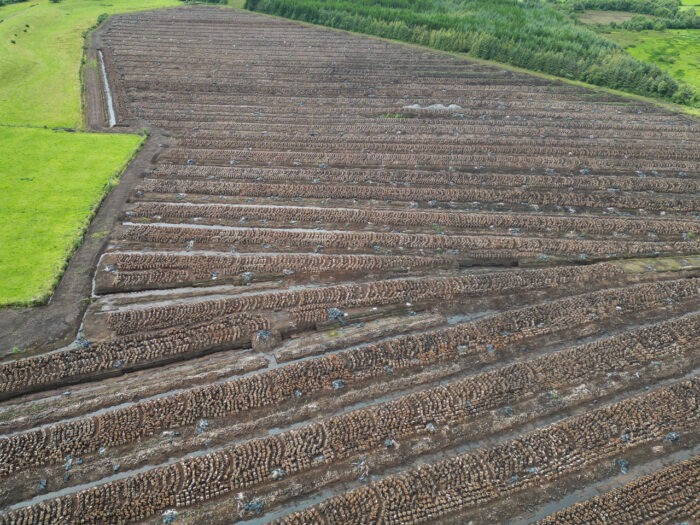
Contested turf: Environmental watchdog steps up scrutiny of commercial peat extraction
Earlier this year, Niall Sargent joined The Currency as Current Affairs Correspondent. An award-winning multimedia investigative reporter and lecturer, his work focuses primarily on issues related to climate change, biodiversity loss, and food production, as well as a range of other social issues. This was seen in one of his first pieces for us, which examined unregulated peat extraction.
Niall obtained inspection reports from the Environmental Protection Agency (EPA) that detailed how it has responded to concerns raised about suspected unlicensed extraction at 14 sites across the midlands this year.
Photos also show heavy machinery in operation, fresh mounds of milled peat awaiting removal, stacks of large peat sods drying across hectares of bog, and diggers creating drains to release water and dry out peat. Once dry, it releases large amounts of CO2. It is a topic we will be returning to.
Tommie Gorman: From Glenties to Béal na Bláth and beyond
When Tommie Gorman was asked to deliver the oration at Béal na Bláth, he thought it was a case of mistaken identity. But the process of writing the speech got him thinking about the opportunities and challenges that face us on the island – and much more besides. He teased his way through the writing process in a thoughtful piece for The Currency. Tommy writes beautifully for our weekend edition, but this was an exceptional piece, a rumination about where we are and where we, as a country, are going.
Just read the following extract: “Like change that happens as one sleeps, the instinct to write for The Currency went missing from the beginning of July. The time, including silence, was taken up trying to script something for Cork.
“My son, Joe, drove me down. The Google navigation aid played tricks with us, directing us along a web of narrow roads that gave a real sense of ambush terrain. Seven miles from our destination, we pulled in at the entrance to a large hayshed and in the warm breeze, we changed into our formal clothes. It’s the kind of father and son moment that will stay lodged in the memory.”
The Tommy Kelly interview
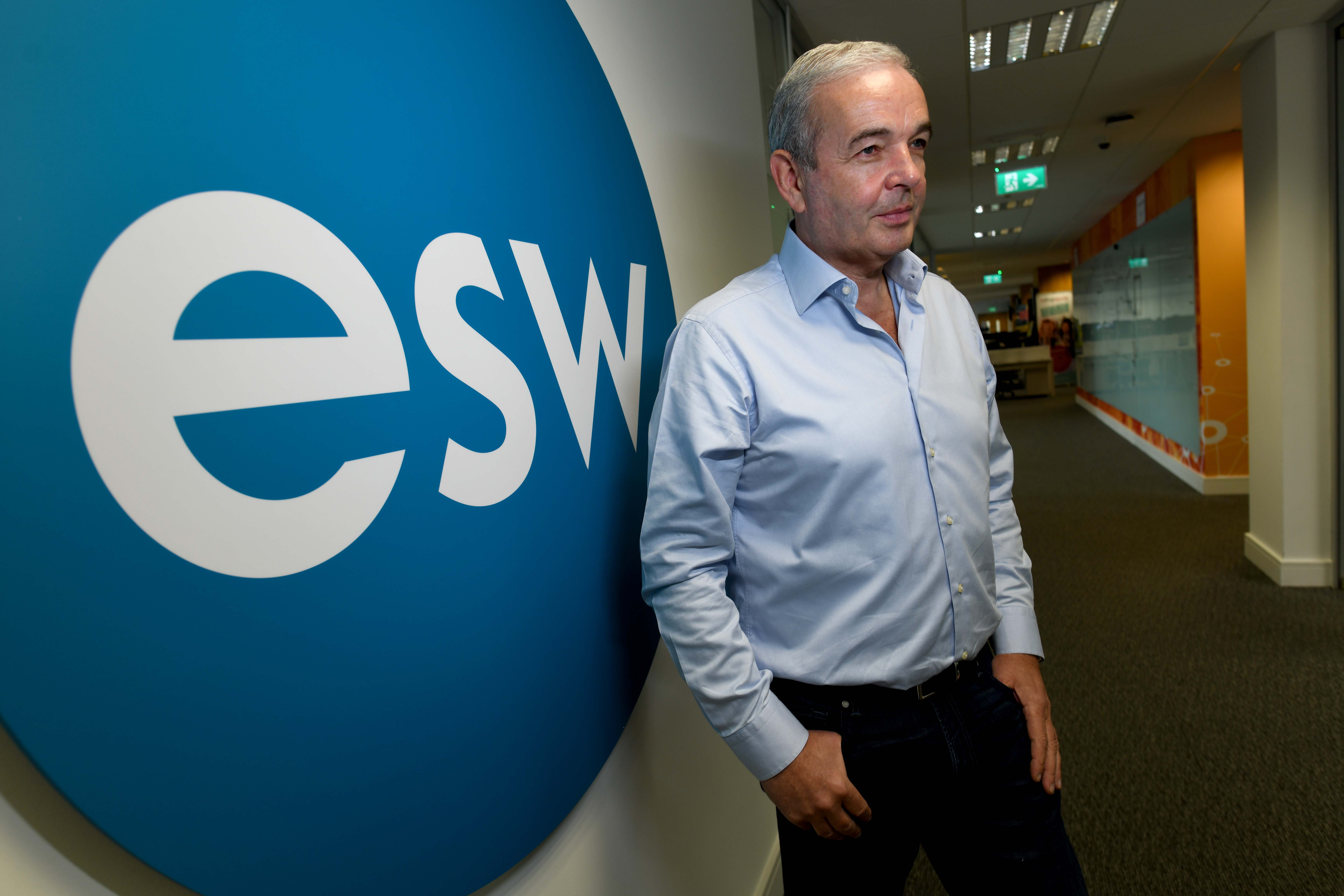
Tommy Kelly doesn’t fit the mould of an e-commerce billionaire. He’s from a farming background. He left school after the inter cert. His first business involved renting out a lorry and a trailer. And the company he built, eShopWorld, is based in Swords rather than San Jose. Yet here Kelly is today, among the richest people in Ireland. Certainly one of the finest technology entrepreneurs the country has ever produced. How did it come to be?
Earlier this year, I sat down with Kelly to discuss how he built his fortune – and how he now plans to deploy it. The latter point is important. Kelly’s money has the potential to change the deal landscape in Ireland. There may be richer Irish people, although many on the rich list are tax residents elsewhere and few have access to the kind of liquid wealth that Kelly has at his immediate command.
The interview ran over two parts and gave an insight into the mind and strategies of a self-made billionaire.
Inside Kennedy Wilson
In the immediate aftermath of the financial crisis, a host of international funds arrived in Ireland looking to buy distressed assets on the cheap. The Los Angeles firm Kennedy Wilson was one of them. However, unlike many of the hedge funds and speculative investors that landed here, Kennedy Wilson put down roots.
It is one of the largest property players in the country, with interests stretching from hotels to blocks of apartments to commercial buildings. In a three-part series, Thomas mapped out just how big Kennedy has become and how much money it has invested here. The first of a three-part investigation explored all the residential properties the US investor has bought, built and sold, for how much and with whom. Part two focused on the commercial element of its portfolio, mapping out each investment on a deal-by-deal basis, while in part three, Thomas interviewed Kennedy Wilson’s Irish head Peter Collins about its journey to date, and what is coming next.
Tech bro Anglo: My week in Silicon Valley as its bank crashed
This has been a bad year for Big Tech, and a key trigger point was the failure of Silicon Valley Bank. Stephen Kinsella was in the area that week and saw its impact first-hand. He went there to meet with top-tier tech companies. As the meetings progressed, its main bank collapsed. He chronicled his journey for an essay in The Currency and assessed the impact of SVB’s failure on monetary policy and the wider technology community.
He wrote the piece on a plane journey home. Events were moving so quickly that by the time the plane landed, the ground was shifting once again.
“The plane has landed. My phone pings. SVB’s depositors will be made whole. The Fed has moved with speed and seriousness to stem any potential contagion while providing a funding flow for weak bankers similarly affected. The wound is likely cauterised, and the bank is, effectively, no more. What might rise up to take its place as the funder of tech titans into the future, and will it match SVB’s hunger for risk? Is the pipeline of future Silicon Valley start-ups de facto damaged?”
“I think the whole episode was well-planned and well-plotted by an evil group”
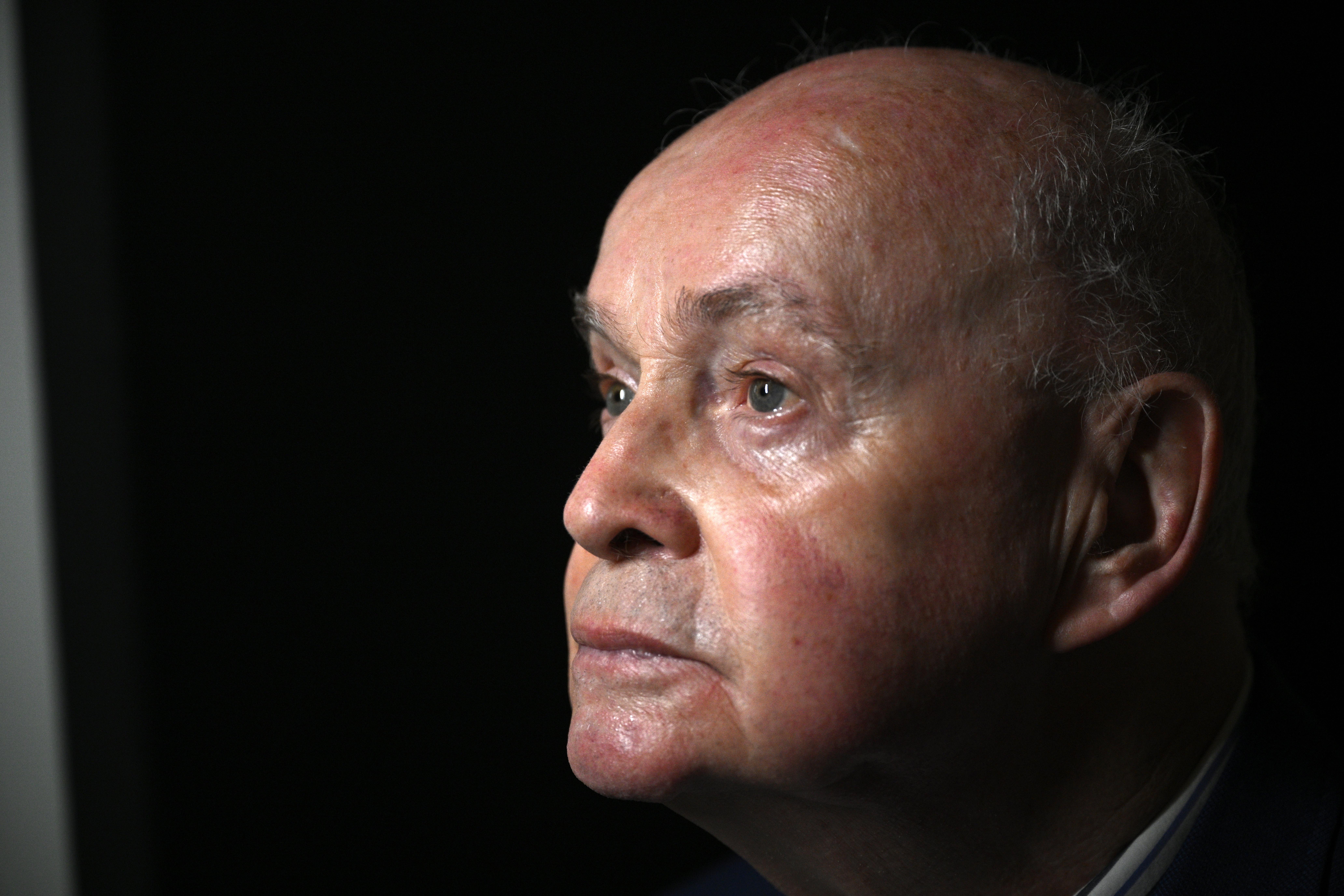
As a former government minister who had been admired as a schoolteacher for 30 years, Pat Carey’s distinguished career in public life could have been indelibly tainted by shocking and squalid lies. In a thoughtful and at times depressing interview with Sam, he talked openly about the controversy, his sexuality, and his life.
As Sam put it, Carey has not forgotten, nor forgiven, those who attempted to destroy him personally – and also destroy his professional reputation. But he has found contentment, someone to come home to, a partner who stood by him through the darkest days.
When Sam asked him about the circumstances of how he was falsely accused of child sex abuse, his response was clear and telling: “Unfortunately I’m convinced, and the more I think about it the more I am… I get more convinced; I think the whole episode was well-planned and well-plotted by an evil group.”
Later in the interview, when Sam asked if he ever got to the bottom of who made the allegations, Carey replied: “I am not even sure that they were made by anybody in particular, but they were put together craftily.”
Ardagh at a time of rising rates: Inside Coulson’s $15.8bn edifice of debt, dividends and drinks cans
Paul Coulson built a global packaging giant from the ground up. In May, before Coulson announced his retirement as chairman, Sean told the story of how the Ardagh Group — one of Ireland’s most aggressively-levered companies — was navigating the world of sharply higher interest rates.
Using debt, Ardagh made a string of acquisitions over the years. The biggest of them was the 2016 acquisition of factories from Ball and Rexam for $3.4 billion. The factories were sold off to appease regulators who were worried about Ball’s acquisition of Rexam. In a detailed piece, Sean looked at the company’s model, its fundamentals, and its future prospects.
The Context with Sinead O’Sullivan
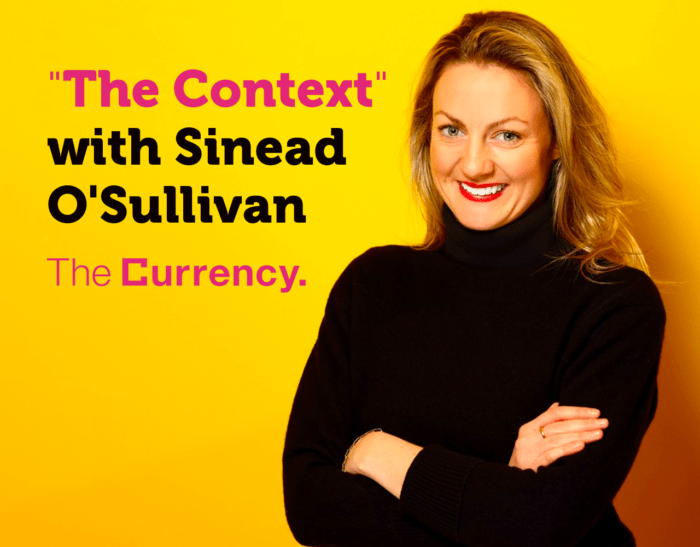
This year, we launched a new podcast concept. The idea, scoped out by Sinead, was to have a combination of a podcast series and book club, whereby we would tell members what books to read and then Sinead would interview the author. The outcome was brilliant, with Sinead interviewing the authors of 12 books over two series.
From Disrupting Time by Aaron Stark to Dan McCrum with Money Men, Sinead obtained access to authors around the world and questioned them about their motivations for writing their books, and the insights they learned along the way.
The Clerys comeback: An iconic rebirth or the nightmare before Christmas?
Shuttered for more than eight years, the revamped Clerys Quarter is set to open with shops, offices and a rooftop bar and restaurant. But its flagship tenant, the UK clothing chain Flannels, wants out of the lease in a legal row involving money, spin and force majeure claims.
Francesca delved into the action, revealing new details about what was happening, and outlined just how high the stakes are in the dispute: “The court heard from senior counsel for Oces Imogen McGrath that significant sums of money have been spent by the landlord on construction and it may now have to find a new tenant, which will require further bespoke work to be carried out.“
Inside Home for Life: The players, the money, and the dispute with its former provider
Under the much-heralded Mortgage-to-Rent scheme, the state selected a new company called Home for Life Ltd to work with local authorities to provide a badly needed long-term solution to the many people in mortgage distress. “The Government’s message is clear. Help is available to borrowers with distressed mortgages at risk of losing their homes,” the then Minister for Housing Eoghan Murphy declared at the time.
Under the terms of the scheme, Home for Life acquired properties from lenders after their voluntary surrender by borrowers who were unable to pay their mortgages. Simultaneously, the borrowers entered into a tenancy agreement with their local authority, thereby allowing the borrower to stay in their home as a social housing tenant paying affordable rent to a local authority.
In the years since Home for Life has mainly maintained a low profile. However, a court case filed against the firm in 2022 by a former business service provider, O’Dwyer Property Management Ltd trading as O’Dwyer Real Estate Management (ODREM), put the business back in the spotlight. Tom brought the case to life with his usual gusto.
“The 2020s is one of these big decades”: Philip Lane on pandemics, wars and inflation
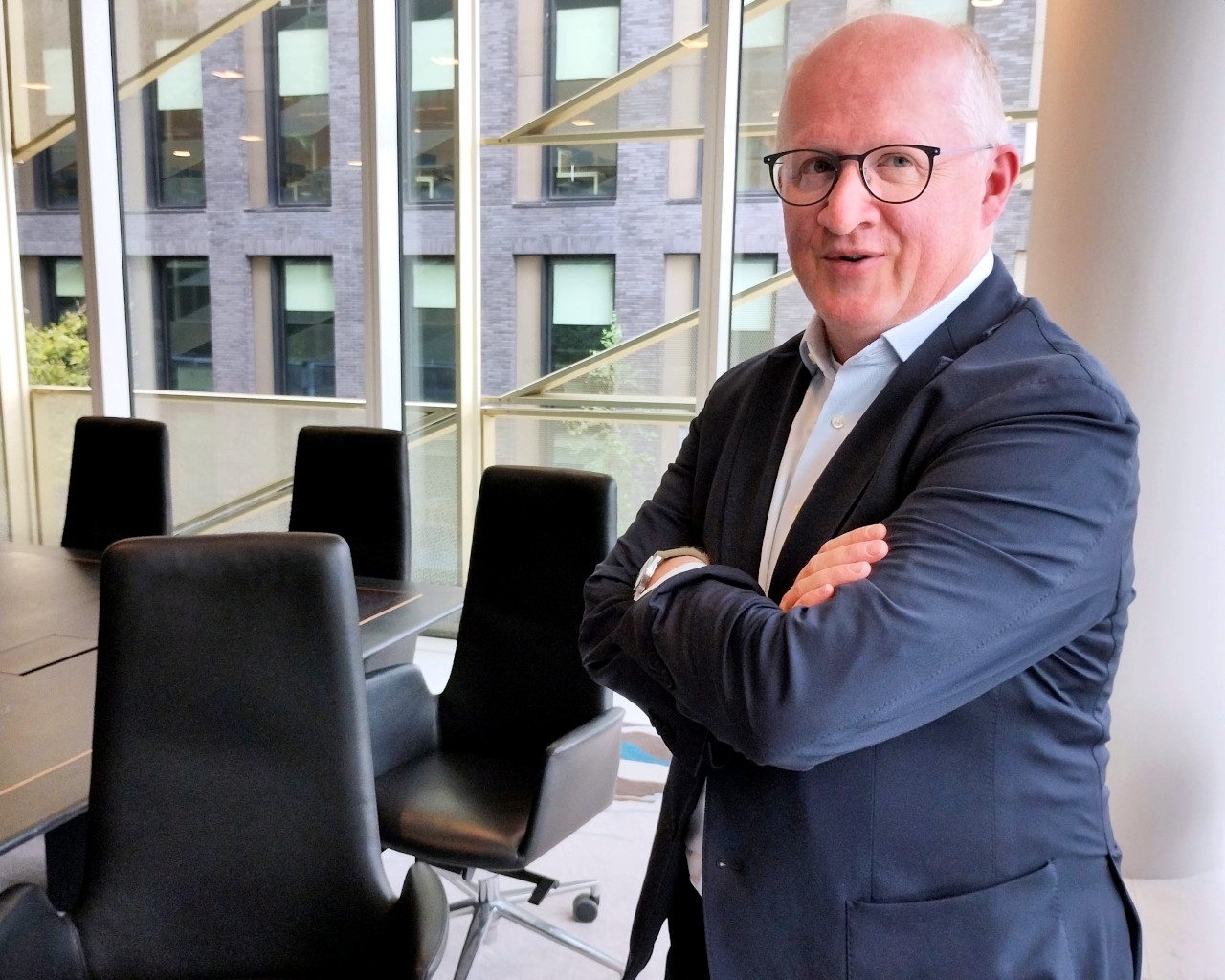
As chief economist of the ECB, Philip Lane is one of the most influential people to emerge from Ireland. And, in September, the former governor of the Central Bank sat down with Stephen for a wide-ranging interview.
One economist interviewing another runs the risk of boredom. However, the conversation was riveting, with Stephen avoiding the usual questioning to concentrate instead on the latest data on inflation and potential anomalies Lane sees in the data. They discussed the science and art of economic modelling, what the ECB has learned during his time and the value of humility.
“The welcome I receive in this room is the opposite of the interior designer’s intention – it is warm and with a smile. There is no need to project the image of power when one actually has it,” Stephen wrote at the time.
The green jersey series
For years, the double Irish scheme siphoned multinationals’ profits to offshore islands. Now their intellectual property makes half of all corporate profits in Ireland tax-deductible under its successor green jersey scheme.
In the build-up to Budget 2024, we sought to analyse what was going on – and what the structures meant for the future of corporation tax receipts.
In part one, Thomas revealed how a “gigantic” share of US profits came to be taxed in Ireland. In part two, he detailed how, after Budget 2024, multinationals will no longer have access to a 12.5 per cent rate in Ireland. “There is still a lot more they can do to locate profits here at a tax advantage, however, and the unofficial expectation for the Exchequer is: more money,” he wrote.
In part three, former US official Brad Setser examined the US attitude towards Ireland’s tax structures, writing: “The latest Irish numbers illustrate just how profitable American multinationals are, and just how much work remains to be done to set on a reasonable global distribution of the tax on those profits.”
Stephen rounded off the series arguing that no one really cares where windfall corporation tax is coming from as long as it keeps coming and, absent radical political change in the US, it likely will.
To the manor born: John Magnier’s battle to acquire 751-acre estate in the Golden Vale
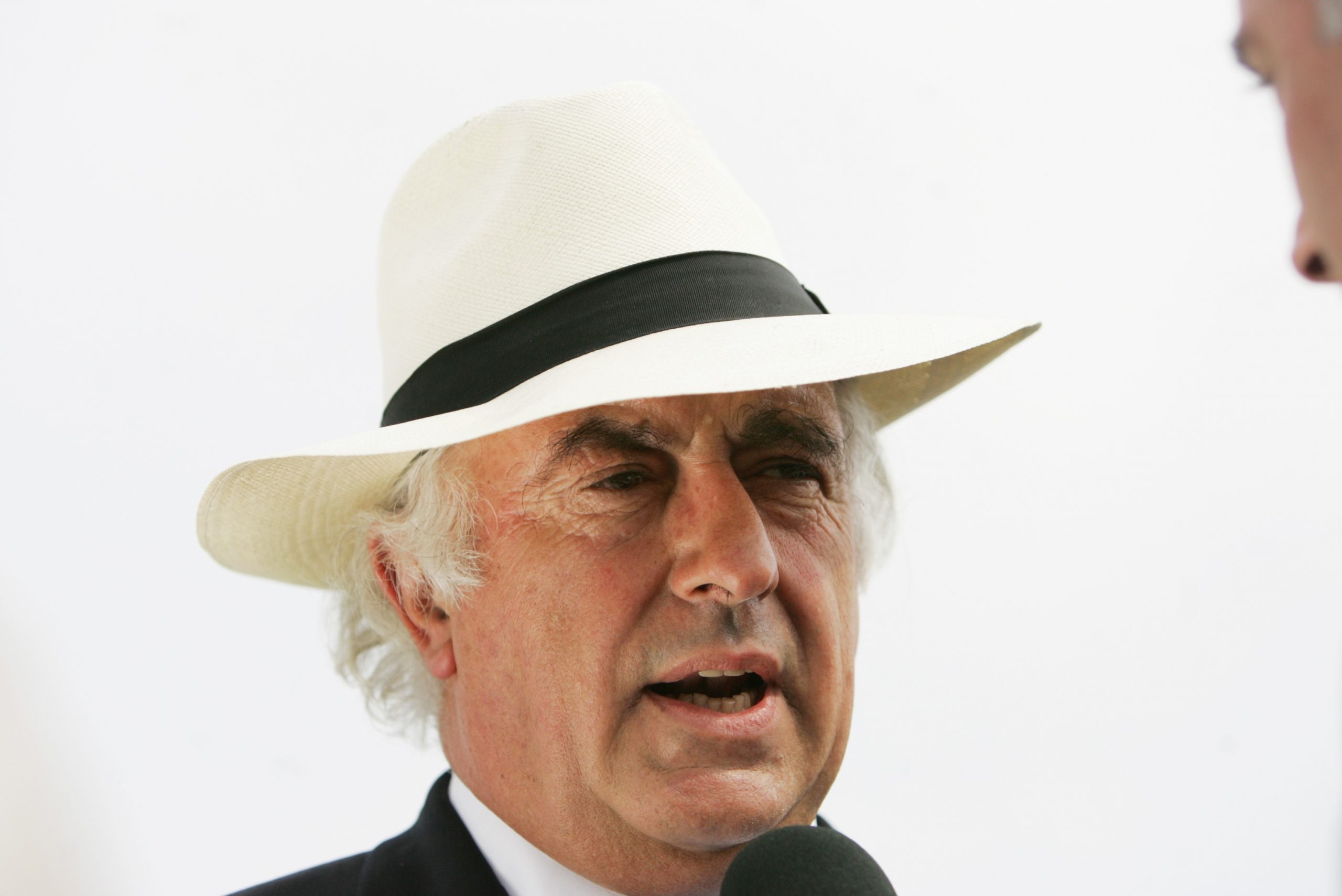
On July 7, Barne Estate in Co Tipperary was put up for sale with a guide price of €13.5 million. The marketing blurb accompanying the sale highlighted its geography, located in what is known as the Golden Vale, an area with a rich agricultural pedigree.
When prime agricultural land comes to the market in Co Tipperary, all eyes generally turn to John Magnier, the billionaire owner of the world-renowned Coolmore Stud. Over the years, he has built up vast landbanks in the area.
So it was no surprise when, on August 22, Joe Holohan, who worked for Magnier’s Coolmore operation, contacted John Stokes of REA Stokes & Quirke, inviting him, as well as the seller Richard Thomsom-Moore and his wife Anna, to Coolmore House to discuss the potential sale of the property.
Magnier thought he agreed to a deal there and then to buy the Barne Estate. The other side disagreed. The outcome will be a fascinating court action that will shed light on Magnier’s operations, and the battle for land in the Golden Vale.
Bono, McGuinness and me: Sam Smyth’s Las Vegas odyssey
Sam is one of the best journalists this country has produced over the past 50 years. He is insightful, questioning, and always worth reading. It is a pleasure having him write for The Currency.
And this year, he went to Las Vegas to see U2 perform during their residency at the Sphere. He produced a wonderful piece; a lovely mix of colour reportage, juicy gossip, and quotes from the likes of Paul McGuinness.
“U2 always realised that the production of a U2 show was a vital part of their own legend,” McGuinness told Sam. “The U2 audience always expected music and a show and this show is the latest manifestation of that. I am enormously impressed by what they have achieved over the years and this show is better than ever. It will be very hard, very hard for anyone to follow this.”
Anne Harris: Grief can be professional as well as personal. Margaret Heffernan lives with both
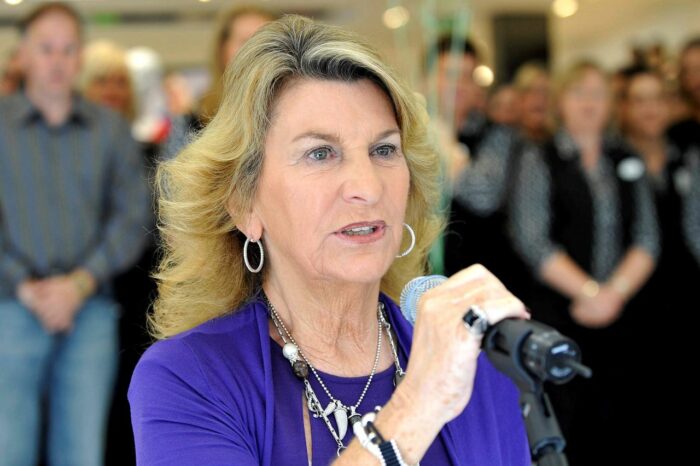
In recent weeks, Ben Dunne sadly passed away. Most commentators, including some of our own, looked at the life and legacy of Dunne himself. Anne, however, brought a different perspective, looking at the retail dynasty and the family drama surrounding it through the prism of his sister, Margaret Heffernan. The result was a brilliant column that examined the wider family dynamics and the battle to reposition Dunnes Stores.
“There can be no doubt that Margaret Heffernan’s grief for her brother is profound. The impenetrable walls of privacy, embedded deep in the DNA of Dunnes Stores sometimes convey a sense of coldness. Nothing could be further from the truth,” Anne wrote.
“Our remit is wider than having just an economic responsibility. We have to run a country”
Michael McGrath’s apprenticeship has been lengthy, shadowing the minister for finance for close to a decade from the opposition benches before eventually moving to the Department of Public Expenditure and Reform. This year, he finally got to give his maiden budget as minister for finance.
A day after the budget was delivered, I interviewed him to discuss the themes of the budget and the wider political climate.
“Budget day is a day of theatre, you get a whole series of announcements. And it’s easy to be cynical or negative about it. But it is the work through of all of those measures now that really matters, the implementation of the budget, the hard yards. The immediate aftermath of the budget, I would characterise as being generally low key, and I would see that as a positive,” he told me.
The minister for finance also talked about his future amid speculation he might decamp to Brussels as our next EU Commissioner. “I hope that we will be in government after the next election. But if we’re not, I don’t want another party to come in and dismantle what we’ve just put in place. Because I passionately believe it is the right policy decision, and it is in the interests of the country,” he said.
“One thing I wasn’t going to accept was failure. If you put 100 per cent into something, you can make it happen”
Earlier this year, Sam Moffett, the 33-year-old founder and chief executive of Moffett Automated Storage (MAS), took Tom on a fascinating tour of what his company is doing from its base in the middle of rolling fields in Listroar, Clontibret, Co Monaghan.
He was an informative tour guide, taking Tom from a large upstairs room where banks of computer screens light up coders building software and into the noise of the warehouse where sparks fly as welders join steel to make components for his automated storage machines.
Months later, he won the overall award at the EY Entrepreneur of the Year event. Anyone who read the piece would not be surprised. His vision and his ambition shone through.
“Our family businesses have always taken a natural growth approach. Self-control is important. I have seen companies take in tens of millions of investment and then struggle when they try to grow too fast,” he told Tom. “Our turnover last year was €9 million. This year it’s going to be €18 million. We’ve already taken orders out to April next year so I know where our turnover roughly will be.”
JP McManus has gifted €32m to the GAA. How does it fit in with modern philanthropy?
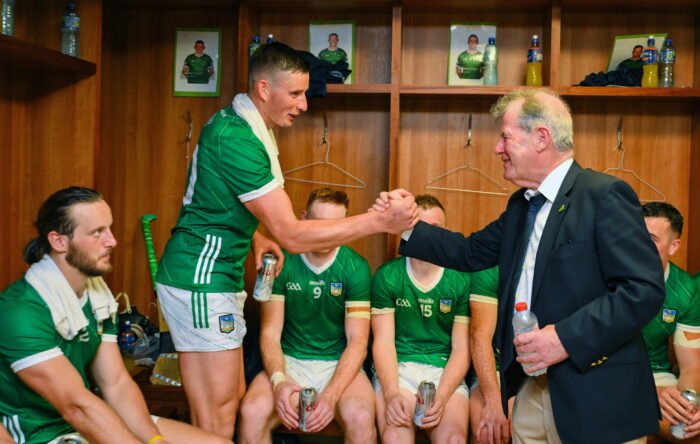
In December, the billionaire JP McManus made the kind of splash only a whale can with a €32 million donation to be split between each of Ireland’s GAA county boards. Other than specifying that the money is to be divided equally between clubs, it appears McManus wants no say or oversight as to how the cash is spent. He is not looking for a tangible return on the investment or a rationale from the clubs as to why they spent the money or the way they did so.
But as Rosanna outlined in the aftermath of the donations, this particular donation from McManus is in syncopated step with the modern philanthropy industry which is trending towards a data and rationale-led approach as to how to give money most effectively to solve specific problems.
Rent Pressure Zones protect sitting tenants. New data shows the knock-on effect on new renters
Between 2015 and 2022, market rents increased by almost 75 per cent, while in the same period, rents for sitting tenants increased by just 19 per cent. And based on analysis by Ronan Lyons, Ireland is missing between 200,000 and 250,000 rental homes. Ronan has been delving into the dysfunction of the property market all year, but nothing summed up that dysfunction better than the failure of rent pressure zones, which, he says, are only serving sitting tenants.
“In reality, rent pressure zones protect sitting tenants – but at a cost that is paid by those in the open market. Mobility in the rental market grinds to a halt, as only those who simply have to move will do so. But those who simply have to move are disproportionately drawn from the most vulnerable in society: such as those who have newly arrived in a city or indeed to a country or those whose family circumstances have changed,” he wrote.
Renewables, retrofits and rural buses: The big Sinn Féin climate interview
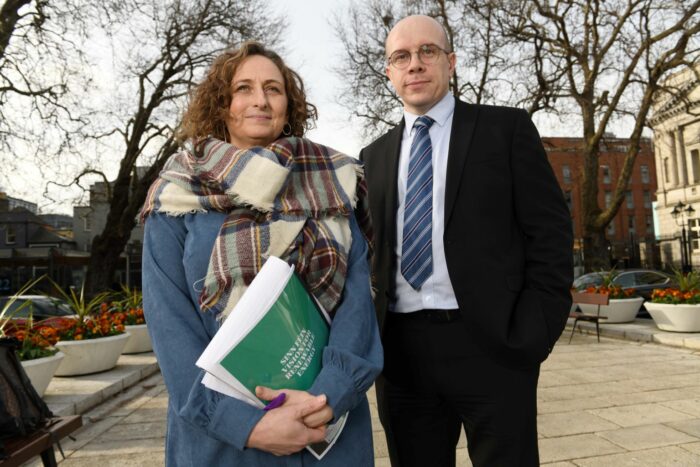
One of the challenges that will extend far beyond this year is the need to address climate change and Ireland’s trajectory that has so far failed to align with national obligations to cut greenhouse gas emissions.
Sinn Féin’s policy in this area has long been one of opposition only. However, as part of its general effort to change its public perception into one of a party capable of governing the country, Sinn Féin published a series of documents to outline its vision of climate action one year ago.
In March, Thomas sat down with the party’s spokespeople on climate, Senator Lynn Boylan and Darren O’Rourke TD, to tease out what they would do in government. From congestion charges to their proposals to redesign retrofit schemes and the public service obligation levy on energy bills, their interview turned into an enlightening article and an hour-long podcast.


